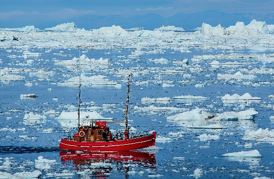The wind of change is pushing soft skills high on the agenda
by Dr Luiza Shahbazyan – Product Manager of SafeMetrix at Safebridge
Many say we live in a VUCA world, a term coined by the US Army War College in the 90s to describe what the world would be like after the Soviet Union’s collapse: volatile, uncertain, complex, and ambiguous. In reality, VUCA has never been more relevant, especially for the maritime industry.
Factors like disruptive technologies and climate change urge companies to look beyond job-specific technical knowledge and skills and nurture crews who are prepared for the unknown.
It is not by chance that a lot of companies view the “soft” skills like coping under pressure and interpersonal communication as equally important to technical skills and assess them for hiring and promotion.
As we consider how soft skills are becoming increasingly important in a VUCA world, we look at two trends that are currently affecting shipping.
Disruptive technology
Modern ships are increasingly dependent on advanced software and internet access. Advances in real life analytics make fuel monitoring and condition-based maintenance possible. Several initiatives aim at building autonomous vessels and their adoption under human supervision is expected to reach 11 to 17% by 2040.
However, a broad survey of IMarEST within the industry shows that currently, only 15% believe that crews are prepared for “smart shipping”, especially autonomous elements. This is partly due to a shortage of technical, partly to non-technical, “soft” skills.
According to LinkedIn’s annual Global Talent Trends 2019 report, soft skills is one of the trends that are impacting the future of work. While many technical tasks can be automated, uniquely human capabilities like assertiveness, resilience and social sensitivity are difficult to reduce to an algorithm, which explains why they are growing in prominence.
Another reason is that technology is breaking the silos, and employees need the skills to work with others and make decisions effectively.
Climate change
As Arctic ice vanishes, new shipping routes in previously hard-to-access areas are opening up. The Arctic is potentially a faster, more direct route between Asia and ports in Europe and eastern North America. For example, through 2030, routes connecting North America and Europe with Japan will take an average of just over 22 days.
However, establishing operations in such regions is associated with a number of hazards in terms of machinery and human performance. The rapidly changing and severe weather conditions combined with elevated levels of risk, require crews who possess not only the technical knowledge, but the perseverance to cope with the ongoing challenges and the resilience to quickly bounce back after negative experiences given the lack of population centres, suitable ports and search and rescue support.
Changing weather conditions do not affect only the Polar areas. In its 2019 Shipping and Safety Review, Allianz discussed how the changing weather patterns observed in the last years resulted in significant challenges for shipping.
Hurricanes and bad weather were contributing factors in at least three of the five largest vessels lost during 2015 including El Faro, the worst US commercial maritime disaster in decades. While the National Transportation Safety Board identified the captain’s decision making as the main reason for the tragedy that killed 33 people, the crew’s lack of assertiveness, another important soft skill, was a contributing factor.
Moreover, just recently in September, the world witnessed the easternmost Category 5 Atlantic hurricane on record, named Lorentzo, that led to the sinking of Bourbon Rhode with fourteen crew members onboard.
Shipping was never a simple and predictable endeavour, but today more than ever the crews must be prepared for the unknown both in the short-term (extreme weather) or on the long-term (autonomous vessels). This requires one to possess job-specific skills like knowledge of meteorology and ice accretion, as well as the soft skills to utilise them under pressure and when working with others, to solve new or emerging problems with no known answers.









